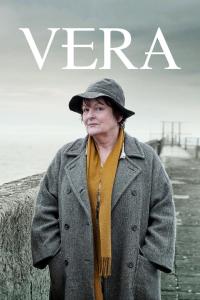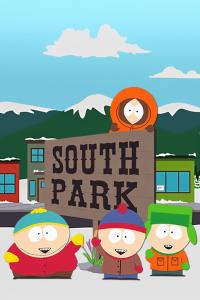Torrent details for "Frozen Planet II S02E06 Our Frozen Planet (1280x720p HD, 50fps, soft Eng subs) " Log in to bookmark
Controls:
Category:
Language:
 English
EnglishTotal Size:
2.08 GB
Info Hash:
7509dc62949af47252090ed2a498a0ed5263f399
Added By:
Added:
17-10-2022 02:08
Stats:
| Update
Genres:
Name
DL
Uploader
Size
S/L
Added
Title:
Frozen Planet II (2022)
Genre:
Documentary
Runtime:
n/A - Rating: 9.9
Director:
n/A
Cast:
Plot:
Season: 1 Year: 2022
Frozen Planet II S02E06 Our Frozen Planet (1280x720p HD, 50fps, soft Eng subs)
Our frozen planet is changing. In this final episode, we meet the scientists and people dedicating their lives to understanding what these changes mean, not just for the animals and people who live there, but for the world as a whole. / / Our journey begins in the Arctic, where every summer huge quantities of ice calve from the edges of Greenland's melting glaciers. On top of the ice cap itself, glaciologist Alun Hubbard descends into a moulin to try to understand the mechanisms that are driving this historic loss of ice. / / Elsewhere in the Arctic, it's not just land ice that is disappearing. In the Gulf of St Lawrence, Canada, biologists are trying to find out how the loss of sea ice will impact the lives of baby harps. In Arctic Russia, with the loss of summer sea ice, more and more polar bears are arriving on the island of Wrangel. Here, a local ranger and scientists are braving the hungry bears to assess their future survival. / / Loss of sea ice impacts not just wildlife but people too. In the remote community of Qaanaaq, Greenland, local Inuit hunters are finding the ice too dangerous to travel and hunt on, risking their traditional way of life. And these changes happening in the Arctic have the potential to affect people far beyond. On Alaska's open tundra, bubbling lakes hint at the gases being released from the previously frozen soil, including the potent greenhouse gas methane. / / There is one place where the full scale of a melting Arctic can be best witnessed - from space. Based in the International Space Station, astronaut Jessica Meir looks down at forest fires across Europe and reflects how our changing weather patterns are interconnected. / / Rapid ice loss is also happening across the high mountains of the planet's continents. Glaciologist Hamish Pritchard uses a sophisticated helicopter-strung radar system to try to quantify how much ice is left in the previously uncharted glaciers of the Himalayas. It's important as, downstream, some 1.2 billion people rely on glacial meltwater as their primary source of fresh water. / / Finally, in Antarctica, we meet Bill Fraser, who has dedicated 45 years of his life to studying the Adelie penguin. Over this period, he has witnessed changes in weather conditions and the extinction of entire colonies. These 'canaries in the coal mine' are a sign that all is not well, even in the remotest place on earth. And changes here have the potential to affect all of us, so an international group of scientists is on an urgent mission to assess the stability of a huge body of ice known as the Thwaites ice shelf. If this plug of ice melts and slips into the ocean, it will raise global sea levels, impacting coastal communities across the planet. / / The unprecedented changes our scientists are witnessing may be profound, but there is hope that, through a combination of technology and willpower, there is still time to save what remains of our frozen planet.
First broadcast: 16 October 2022
Duration: 1 hour
Torrent dead? Request reseed at torrentgalaxy.org - or ask at elsonroa at tutanota.com

Media info:-
General
Format : MPEG-4
Format profile : Base Media
Codec ID : isom (isom/iso2/avc1/mp41)
File size : 2.08 GiB
Duration : 58 min 15 s
Overall bit rate mode : Variable
Overall bit rate : 5 111 kb/s
Video
ID : 1
Format : AVC
Format/Info : Advanced Video Codec
Format profile : High@L3.2
Format settings : CABAC / 4 Ref Frames
Format settings, CABAC : Yes
Format settings, Reference frames : 4 frames
Codec ID : avc1
Codec ID/Info : Advanced Video Coding
Duration : 58 min 15 s
Bit rate mode : Variable
Bit rate : 4 973 kb/s
Maximum bit rate : 7 605 kb/s
Width : 1 280 pixels
Height : 720 pixels
Display aspect ratio : 16:9
Frame rate mode : Variable
Frame rate : 50.000 FPS
Minimum frame rate : 25.000 FPS
Maximum frame rate : 90 000.000 FPS
Color space : YUV
Chroma subsampling : 4:2:0
Bit depth : 8 bits
Scan type : Progressive
Bits/(Pixel*Frame) : 0.108
Stream size : 2.02 GiB (97%)
Color range : Limited
Color primaries : BT.709
Transfer characteristics : BT.709
Matrix coefficients : BT.709
Codec configuration box : avcC
Audio
ID : 2
Format : AAC LC
Format/Info : Advanced Audio Codec Low Complexity
Codec ID : mp4a-40-2
Duration : 58 min 15 s
Bit rate mode : Variable
Bit rate : 128 kb/s
Maximum bit rate : 133 kb/s
Channel(s) : 2 channels
Channel layout : L R
Sampling rate : 48.0 kHz
Frame rate : 46.875 FPS (1024 SPF)
Compression mode : Lossy
Stream size : 53.3 MiB (3%)
Language : English
Our frozen planet is changing. In this final episode, we meet the scientists and people dedicating their lives to understanding what these changes mean, not just for the animals and people who live there, but for the world as a whole. / / Our journey begins in the Arctic, where every summer huge quantities of ice calve from the edges of Greenland's melting glaciers. On top of the ice cap itself, glaciologist Alun Hubbard descends into a moulin to try to understand the mechanisms that are driving this historic loss of ice. / / Elsewhere in the Arctic, it's not just land ice that is disappearing. In the Gulf of St Lawrence, Canada, biologists are trying to find out how the loss of sea ice will impact the lives of baby harps. In Arctic Russia, with the loss of summer sea ice, more and more polar bears are arriving on the island of Wrangel. Here, a local ranger and scientists are braving the hungry bears to assess their future survival. / / Loss of sea ice impacts not just wildlife but people too. In the remote community of Qaanaaq, Greenland, local Inuit hunters are finding the ice too dangerous to travel and hunt on, risking their traditional way of life. And these changes happening in the Arctic have the potential to affect people far beyond. On Alaska's open tundra, bubbling lakes hint at the gases being released from the previously frozen soil, including the potent greenhouse gas methane. / / There is one place where the full scale of a melting Arctic can be best witnessed - from space. Based in the International Space Station, astronaut Jessica Meir looks down at forest fires across Europe and reflects how our changing weather patterns are interconnected. / / Rapid ice loss is also happening across the high mountains of the planet's continents. Glaciologist Hamish Pritchard uses a sophisticated helicopter-strung radar system to try to quantify how much ice is left in the previously uncharted glaciers of the Himalayas. It's important as, downstream, some 1.2 billion people rely on glacial meltwater as their primary source of fresh water. / / Finally, in Antarctica, we meet Bill Fraser, who has dedicated 45 years of his life to studying the Adelie penguin. Over this period, he has witnessed changes in weather conditions and the extinction of entire colonies. These 'canaries in the coal mine' are a sign that all is not well, even in the remotest place on earth. And changes here have the potential to affect all of us, so an international group of scientists is on an urgent mission to assess the stability of a huge body of ice known as the Thwaites ice shelf. If this plug of ice melts and slips into the ocean, it will raise global sea levels, impacting coastal communities across the planet. / / The unprecedented changes our scientists are witnessing may be profound, but there is hope that, through a combination of technology and willpower, there is still time to save what remains of our frozen planet.
First broadcast: 16 October 2022
Duration: 1 hour
Torrent dead? Request reseed at torrentgalaxy.org - or ask at elsonroa at tutanota.com

Media info:-
General
Format : MPEG-4
Format profile : Base Media
Codec ID : isom (isom/iso2/avc1/mp41)
File size : 2.08 GiB
Duration : 58 min 15 s
Overall bit rate mode : Variable
Overall bit rate : 5 111 kb/s
Video
ID : 1
Format : AVC
Format/Info : Advanced Video Codec
Format profile : High@L3.2
Format settings : CABAC / 4 Ref Frames
Format settings, CABAC : Yes
Format settings, Reference frames : 4 frames
Codec ID : avc1
Codec ID/Info : Advanced Video Coding
Duration : 58 min 15 s
Bit rate mode : Variable
Bit rate : 4 973 kb/s
Maximum bit rate : 7 605 kb/s
Width : 1 280 pixels
Height : 720 pixels
Display aspect ratio : 16:9
Frame rate mode : Variable
Frame rate : 50.000 FPS
Minimum frame rate : 25.000 FPS
Maximum frame rate : 90 000.000 FPS
Color space : YUV
Chroma subsampling : 4:2:0
Bit depth : 8 bits
Scan type : Progressive
Bits/(Pixel*Frame) : 0.108
Stream size : 2.02 GiB (97%)
Color range : Limited
Color primaries : BT.709
Transfer characteristics : BT.709
Matrix coefficients : BT.709
Codec configuration box : avcC
Audio
ID : 2
Format : AAC LC
Format/Info : Advanced Audio Codec Low Complexity
Codec ID : mp4a-40-2
Duration : 58 min 15 s
Bit rate mode : Variable
Bit rate : 128 kb/s
Maximum bit rate : 133 kb/s
Channel(s) : 2 channels
Channel layout : L R
Sampling rate : 48.0 kHz
Frame rate : 46.875 FPS (1024 SPF)
Compression mode : Lossy
Stream size : 53.3 MiB (3%)
Language : English











































